We’ve all been there before. You go to your pantry to pull out some needed item for lunch or dinner and then the smell hits you: A rank, sour or musty odor.
Maybe it means some food is going to go bad, maybe not, but in any case it definitely isn’t pleasant. Whatever it is, you need to find the source of the smell and then take steps to eliminate it.
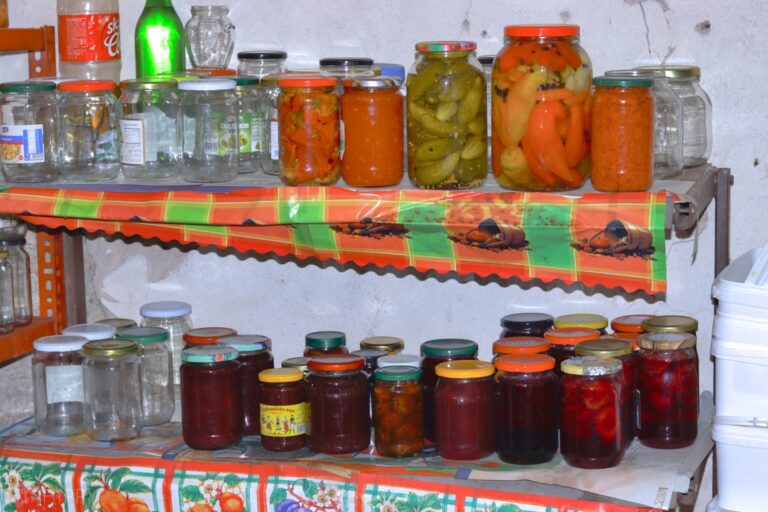
So, why does your pantry smell bad?
Unpleasant pantry odor may occur due to rotting or bad food, droppings or urine from mice, a dead mouse, insect activity, or an outbreak of fungus, mold or mildew.
Any of these odors might mean the food in your pantry is at risk of contamination or spoilage.
It is never pleasant trying to track down a nasty odor coming out of your pantry, but it is something that you must do, particularly if you don’t want to lose the food that is in there. The rest of this article will examine these causes of pantry odor in greater detail, and also give you some tips for dealing with them.
Bad Food
For most of us, the most likely and usually the most noticeable cause of a nasty odor in your pantry is going to be bad food. Spoiled, rotted or otherwise decayed, this is the first thing you should check for particularly if you keep fresh foods in your pantry.
Foods that are bagged, canned or sealed up in airtight containers are unlikely to produce noticeable odors even when they do go bad but it is still a possibility.
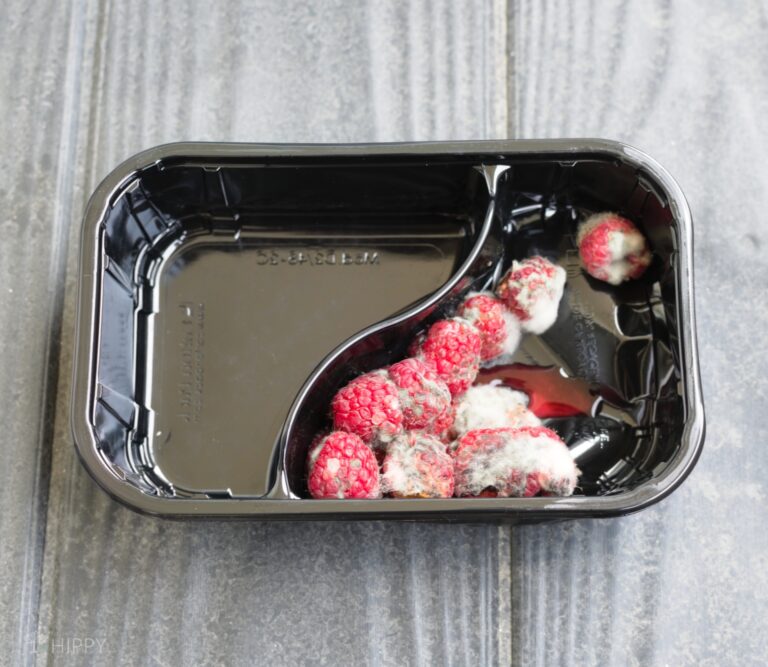
Inspect your canned or jarred foods for bulging, leaking, and other obvious signs of spoilage. Be careful, because when you think you have found the bad item it could rupture in a disgusting spray of the contents if you try to open it!
Far and away the most likely perpetrator hiding in your pantry is going to be fresh fruit or vegetables going bad, with potatoes being a likely culprit.
Kept in a corner of your dark pantry, they are out of sight and out of mind when forgotten until they start to stink. Also keep an eye on similar vegetables like yams, turnips, beets, onions and sweet potatoes.
Any fresh produce should be removed from its basket or other container and inspected carefully for any mushy spots, obvious discoloration, greasy texture or other obvious signs of spoilage. Make sure you clean up the container well and disinfect any residue that might be on your shelving.
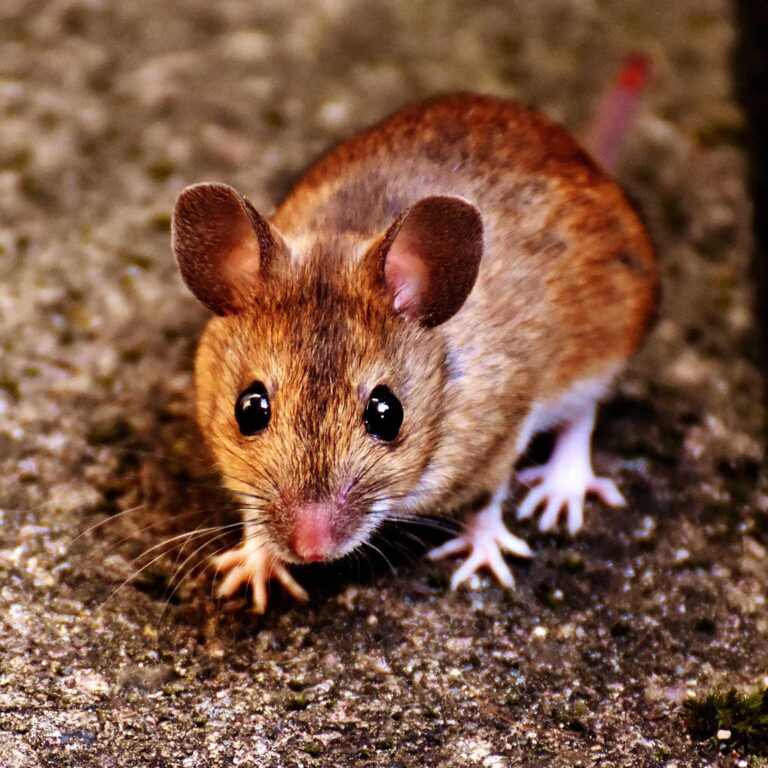
Urine or Droppings from Mice
Another common cause of foul odors coming out of your pantry is mouse feces and urine. Particularly noticeable when a pantry has been left undisturbed for a long period of time and is in a general state of neglect. The waste products of mice are particularly noticeable due to a sharp, sour odor.
Spotting the leavings of mice is pretty easy. Look along the floor and any other surfaces near the wall for black or brown specs that are the size of a grain of rice. That’s mouse poop.
Also look for a greasy smear or track in the same places, as this track is a combination of urine and oil from the mouse’s fur, smeared all over the place as they walk back and forth along the same path.
Noticing any droppings from a mouse is a major problem for your pantry. These pests are persistent and capable of breaking into many containers, but more importantly, they track their body waste over every surface and everything else they touch, contaminating it with potentially dangerous bacteria.
If you even suspect you have mice getting into your pantry, you need to take action to eliminate them quickly, and block any possible entry points. Make sure you thoroughly disinfect everything in the pantry and every surface after you get the culprits.
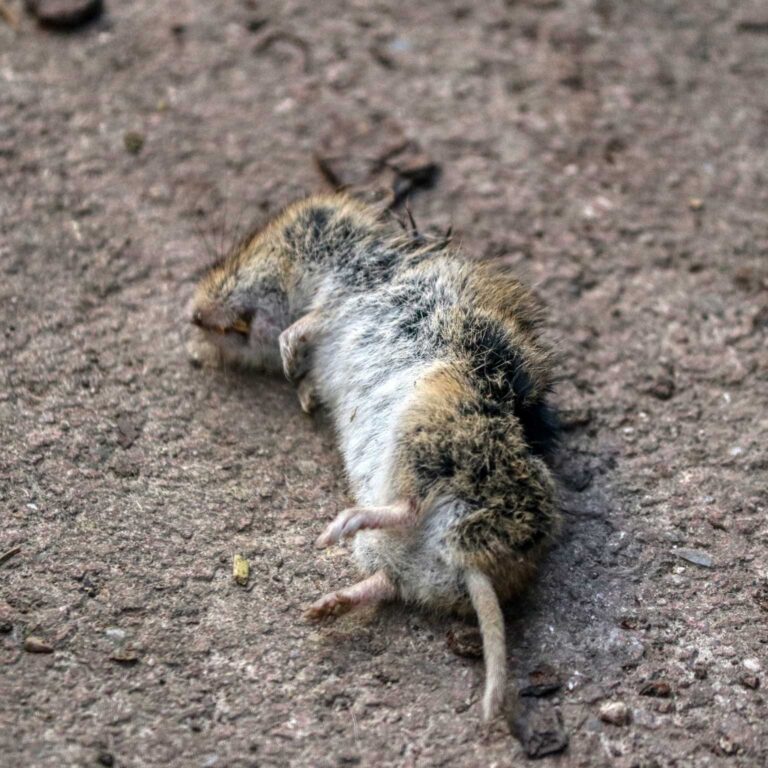
Dead Mouse
By far the nastiest and most offensive source of pantry odor, and unfortunately also one of the most common, is a dead mouse decaying under the floor or behind the wall.
The smell is unique: the sour, sickly sweet, rotting smell of death. It starts out mildly disconcerting, and then quickly progresses to unbearable.
How did a mouse die back there? If a mouse can squeeze its skull through an opening, it can fit its entire body through the space, meaning they regularly gain access to homes through the most unlikely of routes.
How the offending mouse died does not matter so much. Maybe it got into poison somewhere else, and died behind the wall in your pantry. Maybe it even just died of old age.
What does matter is that the odor will be borderline intolerable for at least a couple of weeks until the corpse finally dries out.
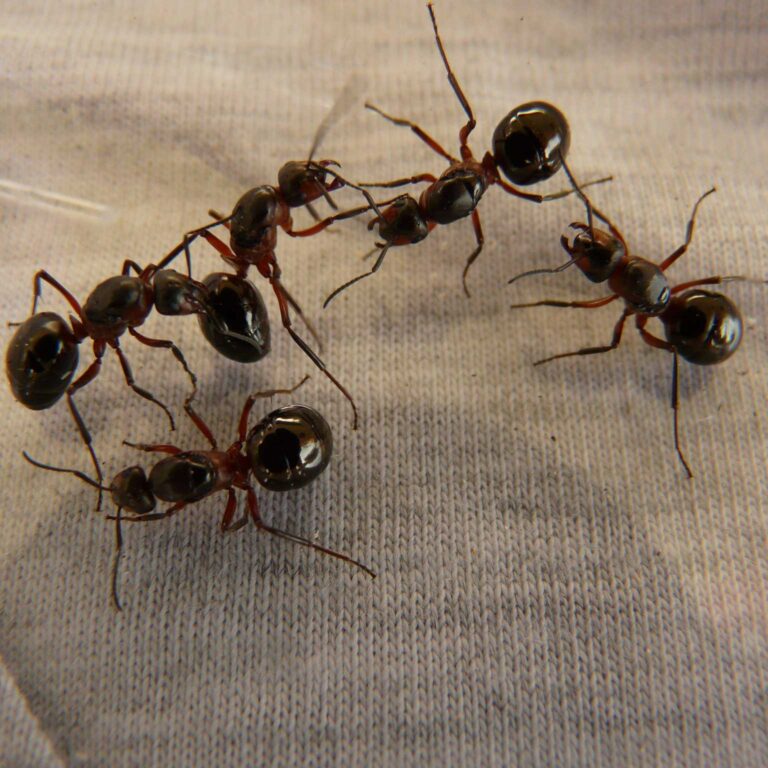
Insect Activity
Most homesteaders know that insects are a regular menace in the pantry, particularly when storing loose, dry grains, flour, and other kitchen staples.
Common dry good pests include beetles, mites, weevils, and ants. These creatures often eat the products they infest, and sometimes lay their eggs in them. In any case, the waste they emit will seriously contaminate your food.
You can usually detect the presence of insect activity by its slightly tangy, musty odor. Much of the time, insect infestation is described as having a metallic or tinny fragrance.
Inspect the suspected food for any live or dead insects and small round or pill-shaped specs which could indicate insect waste.
Generally, the only recourse you’ll have is throwing the food out, but you should take pains to thoroughly inspect your pantry and make sure that no live insects or eggs remain in any crevices or behind shells.

Fungus, Mold or Mildew
Most pantries don’t stand open in the kitchen. Kept closed, dark and typically somewhat warmer than the surrounding area, pantries are always a hotspot for fungus, mold or mildew to break out.
Considering there is usually plenty of other biomatter in there, this is an environment where you’ll constantly have to stay on watch for blooms of all three.
This is a perennial problem in any home that suffers from high humidity levels or has trouble controlling moisture in the pantry.
Anytime you notice an odor that reminds you of a musty basement or a damp crawl space in or near your pantry, you should take the time to inspect it closely for any of the above.
Preventing an outbreak of fungus, mold or mildew is mostly a matter of keeping moisture levels low and maintaining good cleanliness inside the pantry.
Should it occur, you can take care of a small bloom yourself pretty easily with the right cleaners, but a major outbreak is cause for alarm and professional intervention: they can entail a substantial health risk in high concentrations.
Don’t Put Up with Pantry Odor
Despite your best efforts to prevent it, sometimes pantry odor is unavoidable, at least until you figure out what the cause is.
Whether it is due to the activity of a mouse, an unwanted insect infestation, an outbreak of mold or mildew, or just a forgotten potato, you should always try to get rid of pantry odors and their source as quickly as you can to prevent further spoilage and loss of food.
Tom has built and remodeled homes, generated his own electricity, grown his own food and more, all in quest of remaining as independent of society as possible. Now he shares his experiences and hard-earned lessons with readers around the country.
Find out more about the team here.
